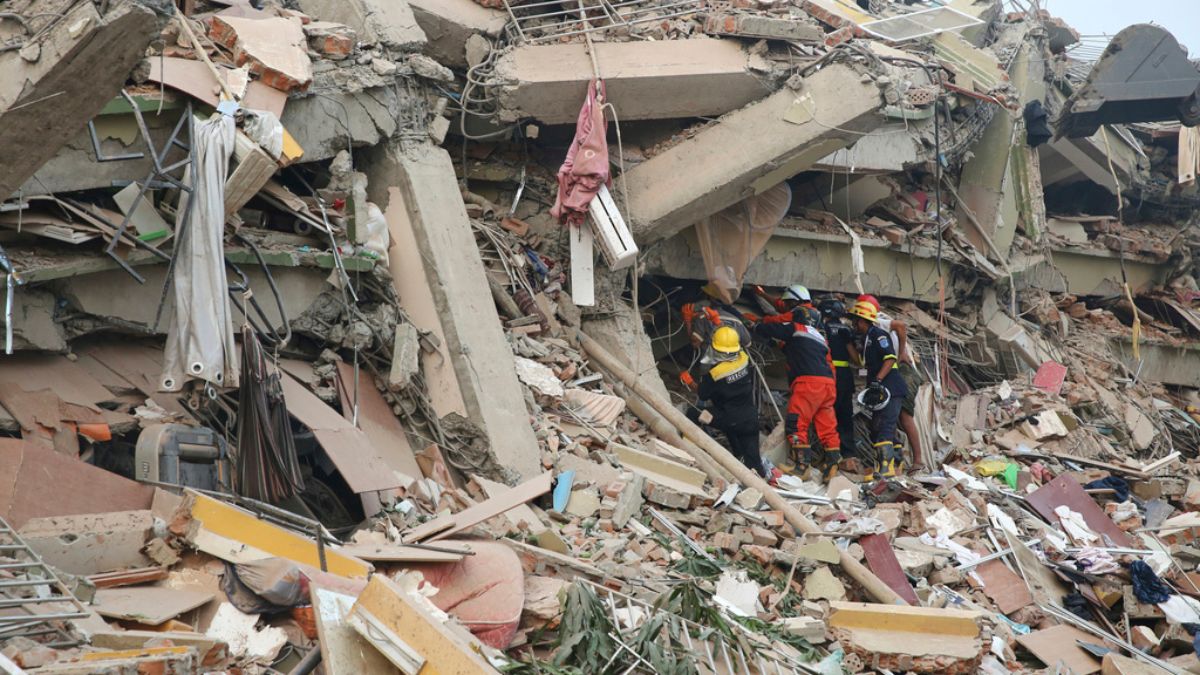Unseasonal rains lashed parts of earthquake-hit Myanmar over the weekend, worsening an already dire humanitarian crisis and heightening the risk of disease outbreaks among the thousands left homeless by last month’s devastating quake.
According to state media, the death toll from the magnitude 7.4 earthquake that struck on March 28 has climbed to 3,471, with 4,671 people injured and 214 still unaccounted for. Aid groups warned that the arrival of rain, coupled with soaring temperatures, could unleash fresh suffering as survivors endure nights in the open, exposed to the elements and growing health risks.
“Families sleeping outside the ruins of their homes while bodies of loved ones are pulled from rubble. Real fear of more quakes,” said Tom Fletcher, the United Nations’ top humanitarian official, in a post on X. “We need to get tents and hope to survivors as they rebuild their shattered lives.”
Fletcher has called for urgent, coordinated global action as international responders struggle to reach devastated communities in a country already reeling from political and economic collapse.
Aid efforts falter as disease threat looms
The latest blow to relief efforts comes as heavy rains, unusual for this time of year, compound the misery of hundreds of thousands living in makeshift camps or beneath tarpaulins. Aid agencies have sounded the alarm over the potential spread of waterborne diseases, including cholera, which could rip through vulnerable populations in the absence of clean water and proper sanitation.
Myanmar’s neighbours, including China, India, and members of the Association of Southeast Asian Nations (Asean), have mobilised rescue teams and shipments of aid in recent days. Yet much of the quake zone, home to an estimated 28 million people, remains difficult to access due to collapsed infrastructure and ongoing conflict.
Ceasefire in tatters as military resumes attacks
The earthquake’s devastation has landed on a country already fractured by civil war and humanitarian crisis. Since the 2021 military coup that ousted the elected government of Aung San Suu Kyi, Myanmar has spiralled into chaos. Public services have all but collapsed, more than 3 million people are displaced, and a third of the population requires humanitarian assistance, according to the UN.
Although a ceasefire was announced last Wednesday, reports of renewed military attacks suggest little has changed on the ground. The UN Office of the High Commissioner for Human Rights said on Friday that Myanmar’s junta was blocking aid to opposition-held regions and was investigating allegations of further violence, including post-ceasefire assaults.
Impact Shorts
More ShortsThe Free Burma Rangers, a humanitarian group operating in conflict zones, said Myanmar’s military had conducted aerial attacks in Karenni and Shan states on Thursday and Friday, killing at least five people. The group’s founder, David Eubank, said at least seven such attacks had taken place since the ceasefire was announced. Civilians were among the dead, he said.
With inputs from agencies
)